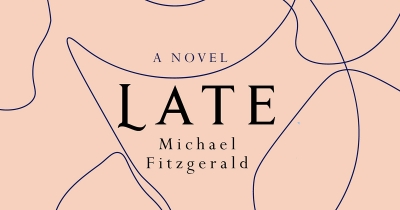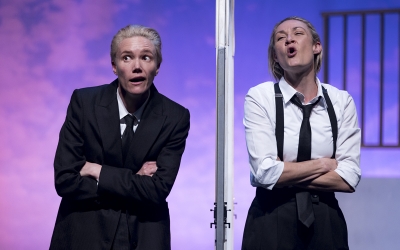Accessibility Tools
- Content scaling 100%
- Font size 100%
- Line height 100%
- Letter spacing 100%
Tim Byrne
The ABR Podcast
Released every Thursday, the ABR podcast features our finest reviews, poetry, fiction, interviews, and commentary.
Subscribe via iTunes, Stitcher, Google, or Spotify, or search for ‘The ABR Podcast’ on your favourite podcast app.
The red thread: Xi Jinping’s ideology of power
by Neil Thomas
This week on The ABR Podcast, Neil Thomas reviews On Xi Jinping: How Xi’s Marxist Nationalism is shaping China and the world by Kevin Rudd. Thomas explains that even China watchers find it hard to be clear on the thoughts and plans of the leader of the Chinese Communist Party. They disagree, he tells us, on basic, critical questions, such as for how long Xi will rule. ‘Enter Kevin Rudd’, Thomas writes. ‘In his latest book, former prime minister Kevin Rudd adds a worthy new chapter to his life of public service, digesting thousands of pages of “Xi Jinping Thought” so that you do not have to’. Neil Thomas is a Fellow on Chinese Politics at Asia Society Policy Institute’s Center for China Analysis in Washington DC. Here is Neil Thomas with 'The red thread: Xi Jinping's ideology of power' by Neil Thomas, published in the December issue of ABR.
Recent episodes:
Straight Acting by Will Tosh & The Hollow Crown by Eliot A. Cohen
To celebrate the year’s memorable plays, films, television, music, operas, dance, and exhibitions, we invited a number of arts professionals and critics to nominate their favourites.
... (read more)Did I Ever Tell You This? by Sam Neill & Everything and Nothing by Heather Mitchell
To celebrate the year’s memorable plays, films, television, music, operas, dance, and exhibitions, we invited a number of arts professionals and critics to nominate their favourites.
... (read more)In Italian playwright Luigi Pirandello’s Six Characters in Search of an Author (1921), a handful of people enter a stage during a rehearsal and begin to break down the very structures of theatre itself. They question not just the verisimilitude of acting but the essentialism of character, the idea that we are ever any one thing fixed in time. It is a concept that animates Virginia Gay’s free adaptation of Edmond Rostand’s Cyrano de Bergerac (1897): this is a tragic hero who pushes at the confines of their assigned role, daring to imagine not just an alternate ending but an entirely new way of being Cyrano.
... (read more)One thing is certain: Shakespeare’s The Comedy of Errors is flat out hilarious, and if it isn’t funny enough on stage, it’s the fault of the production. His only farce, it is often thought to be an early work, but it is surely far too assured to be written before 1594. It’s entirely free of the striving Marlovian rhetoric that hampers the Henry VI plays (commenced in 1591), and it is cleaner, cleverer, and more convincing than The Taming of the Shrew (probably before 1592). It is based on Plautus’s Menaechmi ...
... (read more)










